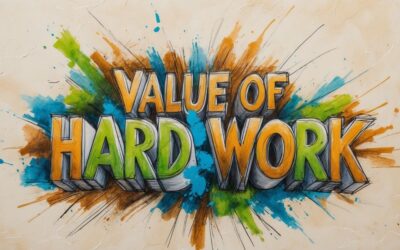SparkCast Episode
The SparkCast episode is not just a reading of the article below; it’s a lively discussion based on the topic of the article, so you don’t want to miss it!
[ppp_patron_only level=5]
[/ppp_patron_only]
Ever Feel Like You’ve Been Hit by a Wave?
One minute you’re sailing along, and the next, a huge, unexpected wave of challenges—a job loss, a personal setback, a piece of bad news—slams into you, leaving you sputtering and disoriented. Life has a funny way of doing that. The big question isn’t whether the waves will come; it’s how you’ll handle them when they do. This is where we get to talk about one of the most beautiful and powerful human traits: the art of building resilience.
Are You an Oak Tree or a Palm Tree?
Think about it this way. In a hurricane, the mighty oak tree, with its rigid, unyielding strength, is the one most likely to be uprooted and snap. But the slender palm tree? It bends. It bows, sometimes nearly to the ground, but when the storm passes, it straightens back up and continues to reach for the sky. Resilience isn’t about being invincible or never getting knocked down. It’s not about being a rigid oak. It’s about being a flexible palm tree. It’s the ability to bend under pressure, to absorb the shock of life’s challenges, and to bounce back—often even stronger and more resourceful than before.
Your Resilience Toolkit: It’s Not Magic, It’s Practice
Here’s the best news you’ll hear all day: resilience isn’t a trait you’re either born with or you’re not. It’s a skill. And like any skill, you can build it. It’s like a muscle that gets stronger with exercise. So what’s in this resilience toolkit?
- Perspective is Everything: Resilient people have a knack for reframing adversity. They can’t control the event, but they can control their response. They are masters of asking, “What can I learn from this?” instead of “Why is this happening to me?”
- Find Your Purpose: Having a sense of purpose—a “why” that’s bigger than your current problem—acts as an anchor in a storm. It could be your family, your work, a creative passion, or your faith. It’s the thing that reminds you what you’re fighting for.
- Embrace Self-Compassion: Beating yourself up when you’re already down is like trying to put out a fire with gasoline. Resilient people understand that setbacks are a part of being human. They treat themselves with the same kindness and understanding they would offer a good friend.
You Are Not an Island
This is a big one. One of the most common reactions to hardship is to withdraw, to hide away until the storm passes. But resilience is rarely a solo sport. It’s forged in connection. Having a strong support system—friends, family, a therapist, a community group—is one of the single greatest predictors of who bounces back from adversity. Reaching out and saying, “I’m not okay” isn’t a sign of weakness; it is one of the most profound acts of strength and a critical step in building resilience. It’s letting someone else hold the umbrella for a little while when you’re too tired to hold it yourself.
One Step at a Time
Building resilience doesn’t happen overnight. It happens in the small choices you make every day. It’s the choice to go for a walk when you want to stay in bed. It’s the choice to call a friend when you want to be alone. It’s the choice to focus on the one small thing you can control when everything else feels out of control. So be patient with yourself. Celebrate the small victories. Remember the palm tree. You have an incredible capacity to weather the storms of life. You just have to believe in your ability to bend, to adapt, and to always, always reach for the sun again.
What’s one thing you do to help yourself bounce back when you’re feeling knocked down? Share your own resilience strategies in the comments below—you might just help someone else out.
Deep Discussion Questions:
- Think of the most resilient person you know. What qualities do they have? How do they handle setbacks?
- How has a past challenge or failure ultimately made you stronger or taught you something valuable?
- What is one small, practical step you can take this week to build your own resilience? (e.g., practice self-compassion, connect with a friend, reframe a negative thought).
Speaking Challenge:
Give yourself a 60-second pep talk. Imagine you’ve just faced a minor but frustrating setback (e.g., you made a mistake at work, you got a flat tire). Record yourself talking yourself through it in a resilient, compassionate, and optimistic way.
Hint for English Learners: Use encouraging language! “Okay, this isn’t great, but it’s not the end of the world.” “I can handle this.” “What’s the next step?” “This is frustrating, but I’ve been through worse.” This is fantastic practice for positive self-talk.










0 Comments